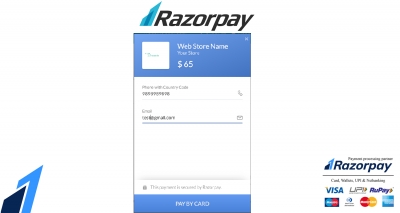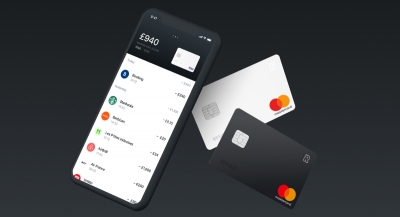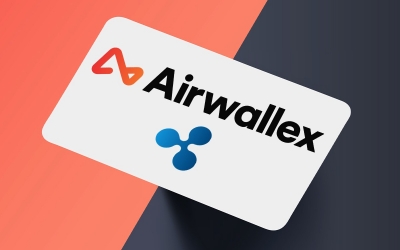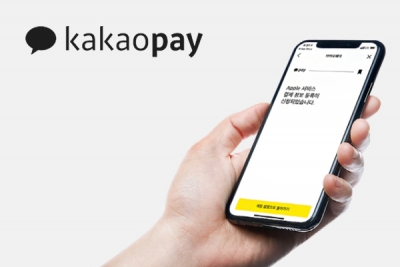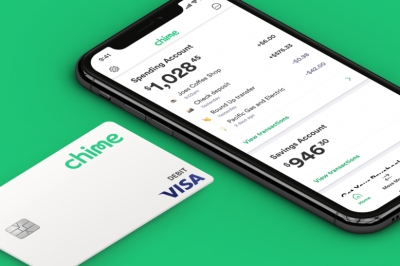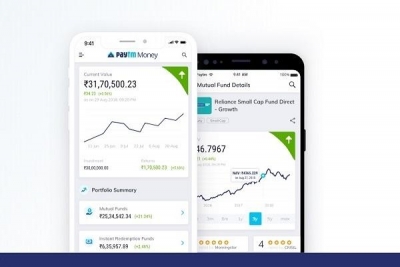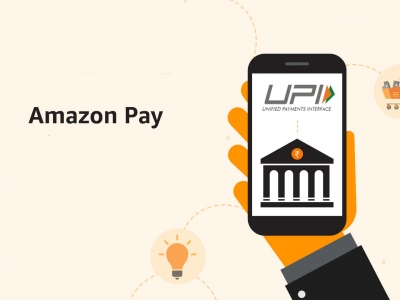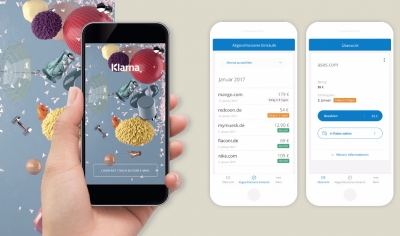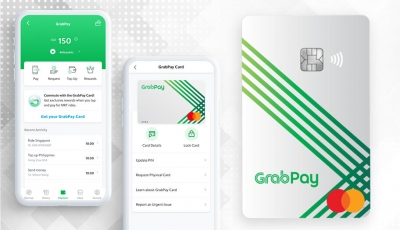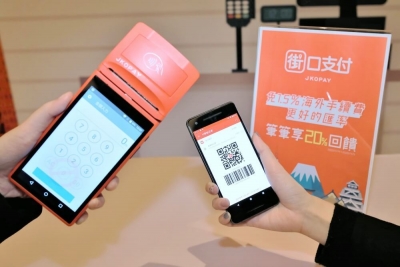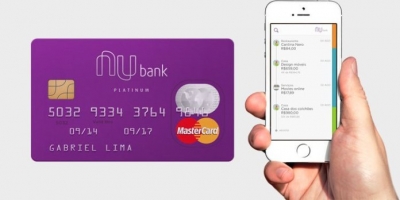Razorpay joins India's unicorn ranks
The fintech narrative has adapted swiftly to the worst public health crisis in a century. Digital banking is now depicted as an epochal shift, driven by drastic pandemic-induced changes in human behavior. In many cases, this is an exaggeration. But some fintech startups, like the newly minted Indian unicorn Razorpay, have turned this crisis into a genuine opportunity. The Bengaluru-based firm raised $100 million in a series D financing round that closed in October, co-led by Singapore’s sovereign wealth fund GIC and Sequoia India, and is now valued at roughly US$1 billion.
Revolut has yet to make a splash in Asia
Revolut is one of Europe's biggest neobanks, but its ambitions are global. Pre-pandemic, Revolut planned to expand to a dizzying array of countries and territories. In September 2019, Revolut announced that within Asia-Pacific it would focus first on Singapore, Australia and Japan. Given its partnership with Visa, the UK neobank said it could later expand to Hong Kong, Taiwan, Korea, Indonesia, Malaysia, the Philippines, Thailand, Vietnam and India.
Money laundering a costly problem for Cambodia
Cambodia has a costly money-laundering problem, both in fiscal and reputational terms. Effective October 1, the EU's revised list of third countries at high risk of money laundering came into effect. Cambodia was one of three newly listed East Asian countries along with Myanmar and Mongolia. Cambodia is also on FATF's money-laundering gray list. Being seen as a high money-laundering risk nation could complicate Cambodia's efforts to woo foreign investment amid the prolonged pandemic-induced downturn. The Cambodian economy is set to contract 4 to 5% this year.
Afterpay is on a hot streak
Australia's Afterpay is riding high on the BNPL boom sweeping its home market, the United Kingdom and United States. Afterpay is valued at US$23 billion, while its share price has risen about 960% since the ASX bottomed out in March. Both the UK and U.S. are key growth drivers for Afterpay, accounting for 41% of its revenue in FY 2020. Services like Afterpay's are gaining in popularity not only because people are shopping online more often, but also because credit is harder to come by during the pandemic-induced downturn. Some lenders are concerned about the ability of consumers to reliably make payments. As a result, consumers are more apt to be interested in installment payments.
Who are the top contenders for a Malaysia digital bank license?
The Malaysia digital banking race is taking shape as a growing number of non-financial firms signal their intention to apply for a digital bank license. Bank Negara Malaysia is expected to issue up to five licenses valid for conducting conventional or Islamic banking in the country. Per the Malaysian central bank's requirements, the new digital banks should focus on boosting financial inclusion primarily through digital means. Potential applicants include telecoms firms Axiata Group (which owns the e-wallet Boost) and Green Packet, ride-hailing giant Grab, gaming company Razer and conglomerate Sunway as well aas the Hong Kong-based financial group AMTD and the Malaysian bank AMMB.
Hong Kong IPO market benefiting at New York's expense
Hong Kong's future as a financial center is increasingly centered on mainland China. That's a boon for the city's capital markets, among the world's best performing in a difficult year. From January to July, Hong Kong IPOs raised US$87.5 billion, up 22% year-on-year, buoyed by a flurry of Chinese tech and biotech listings. While that tally is impressive, the best is yet to come. Ant Group's dual-listing IPO in Hong Kong and Shanghai is expected to raise US$35 billion, half in each city. The IPO is likely to occur before the U.S. presidential election on November 3 to eschew possible market volatility.
Is Airwallex defying gravity?
Airwallex is among a handful of loss-making fintech unicorns that has continued to raise vast sums from investors amid the coronavirus pandemic. Established in Australia in 2015 and now headquartered in Hong Kong, Airwallex is set on a bold path of international expansion and plans to use the US$40 million raised in an extended Series D round that closed in September to bring its cross-border payments business to the United States, Middle East and Africa.
Kakao Pay prepares for IPO in 2021
Kakao's fintech ecosystem is coming into its own. The key units, the Kakao Pay e-wallet and digital bank Kakao Bank, are both gearing up for IPOs in 2021. Kakao Pay is slated to list first, in what will also be the first time a Korean mobile payments firm goes public. Kakao Pay's IPO is expected raise up to 10 trillion won (US$8.5 billion).
Cracks are gradually appearing in the armor of the duopoly Alipay and WeChat Pay have long enjoyed in China online payments. One after another, large Chinese internet companies are expanding their presence in that segment, from e-commerce giants Pinduoduo and JD.com to travel booking site Trip.com. The U.S.'s PayPal and American Express have also entered the market. The additional competition is long overdue and most welcome.
Australia's big banks struggle with money-laundering woes
Australia is struggling to win its fight against financial crime in part because its biggest banks cannot effectively contain money laundering. The bank themselves are rarely willing participants in illicit activity. Rather, ineffective money-laundering controls foment compliance weaknesses that criminals exploit.
Can AirAsia build a super app?
If ride-hailing companies can aspire to be digital banks and super apps, then perhaps airlines can too. In fact, consumers probably trust airlines with their data more than they do Grab and Gojek. For Malaysia's AirAsia, which lost a record US$238 million in the second quarter, developing new revenue drivers is a necessity as the pandemic keeps international air travel grounded. That's why the company is expanding its fintech services - including possibly applying for a Malaysia digital bank license - and launching an Asean focused super app that covers entertainment, shopping and travel.
Many Asian countries struggle to contain money laundering, which is usually perpetrated by non-state actors. North Korea is different. The North Korean state itself is deeply involved in money-laundering schemes, often in cahoots with Chinese entities, to help Pyongyang evade economic sanctions, access hard currency and fund North Korea's nuclear program. Confidential bank documents first reviewed by BuzzFeed News and part of the FinCEN files show just how successful North Korea continues to be in laundering large amounts of money through the global financial system.
Is Chime a neobank or a software company?
Chime may turn out to be the neobank unicorn that proves the naysayers wrong. Following a mammoth Series F funding round that raised US$485 million, Chime's valuation surged to US$14.5 billion from US$5.8 billion in December. The San Francisco-based neobank is now officially the world's most valuable venture-backed fintech. Not only that, but the San Francisco-based neobank is closing in on profitability. By one measure - EBITDA - Chime is already profitable, having reached that milestone during the pandemic, its chief executive Chris Britt told CNBC.
Paytm bets on India's burgeoning stock market
India's Paytm hopes to follow in the footsteps of its key backer Ant Group and build a super app centered on financial services. In a market as large, diverse and fragmented as India's, it is unlikely any app could become a dominant as Alipay and WeChat are in China. However, "super" need not mean the app for everything, maybe just for most of one's digital banking needs. That's why Paytm is steadily adding new services. The latest one is stock trading, a fast-growing business in India.
Southeast Asia of growing importance for Tencent's global fintech push
In mid-September, Tencent opened a Singapore office that will serve as its regional hub, reflecting the Chinese tech giant's growing focus on Southeast Asia. Tencent aims to build a digital services ecosystem in the Asean countries that replicates the success it has achieved at home. Digital banking forms one cornerstone of that strategy, although less overtly than in the case of Tencent's rival Alibaba. Rather than applying for its own digital bank license in Singapore, like Ant Group, Tencent is instead relying on strategic stakes it has taken in internet companies, such as Singapore's own Sea.
Why is India integral to Amazon's fintech foray?
Amazon wants to make fintech a key part of its burgeoning digital services ecosystem in India, which is expected to become one of the e-commerce giant's largest markets over the next few years. With 100 million users in India, Amazon already sells lots of goods online to Indians, including content streaming services. A digital banking ecosystem could help it sell more, including more memberships in its Prime loyalty program and of course, various financial services themselves.
Hong Kong banks feel the heat from challengers
Neobanks like to talk about disruption, but in Hong Kong, they're actually putting their money where their mouth is. Five of the eight virtual banks approved to operate in the former British colony have gone live: ZA Bank, Airstar, WeLab, Fusion Bank and Livi Bank. While none of them has a game-changing value proposition yet, their low fees, digital agility and high deposit rates (at least during a promotional period) are bound to attract customer interest. Their digital acumen is taking on new importance during the pandemic, which recently flared up in Hong Kong.
Taiwan has nearly 10 million mobile payment users
Mobile payments have reached an inflection point in Taiwan, by one estimate surpassing credit cards in popularity for the first time. In a population of about 23 million, nearly 10 million are mobile payments users, according to new data compiled by Taiwan's government. A recent survey of consumer attitudes towards electronic payments by the semi-governmental Market Intelligence & Consulting Institute (MIC) found that 35% of respondents preferred mobile payments, compared to 33% for credit cards. Line Pay was the top digital wallet, followed by homegrown Jkopay and Apple Pay.
What Klarna gets right that most neobanks don't
Neobank unicorns have a fundamental problem: Their business model is shaky. They prioritize customer numbers rather than profitability. It's like an e-commerce vendor focusing more on site traffic than sales. Sweden's Klarna is one of the few exceptions. It has generally been profitable since its 2005 founding, although it lost money in 2019 and again in the first half of 2020 amid the pandemic-induced downturn. Klarna's backers, however, remain sanguine. The company recently closed a new US$650 million funding round, bringing its valuation to US$10.65 billion. Klarna is now Europe's most valuable fintech unicorn.
Is Grab's digital banking bet on the money?
Grab isn't just Southeast Asia's most valuable startup: It's also the most ambitious. Grab aims to give digital banking pride of place in an ecosystem heretofore reliant on ride hailing and food delivery. The user base is there to make the digibanking gambit work, Grab says, pointing to its millions of passengers, drivers and food-delivery customers.
Jkopay aims to build a digital banking ecosystem for Taiwan
Jkopay has been one of Taiwan' top e-wallets for several years now on the back of its strength with small merchants. Many erstwhile cash-only mom-and-pop shops now accept Jkopay as well. Given Jkopay's payments success, the company naturally wants to expand into other online banking segments. Kevin Hu, Jkopay's founder and chief executive officer, recently said that he hoped to build a more complete digital financial services ecosystem that would include deposit-taking, lending and investment services. Hu likened his vision to a "version of Ant Group for Taiwan."
ByteDance pivots to fintech in Asia
China's ByteDance is quietly deepening a push into fintech in Asia as the future of its U.S. operations hangs in the balance. ByteDance's popular short-form mobile video platform TikTok has become a major front in the U.S.-China technology war. Now more than ever, ByteDance needs to monetize its services. Fintech could be a way forward for the company, whose US$100 billion valuation makes it the world's most valuable startup in private markets.
Ant Group eyes Southeast Asian digibanking network
Ant Group has become one of the two most dominant forces in China's online finance market. Ant started with payments and from there expanded into micro lending, wealth management, insurance and much more. But there's only so far Ant can go in its home market, where pressure has been building from regulators and disgruntled incumbents, prompting the fintech giant to rebrand itself as a technology company. With a massive IPO imminent, Ant is looking for greener pastures overseas where it can put the cash raised from the deal to good use. Fintech friendly and financial inclusion focused, Southeast Asia fits the bill.
Singapore's banking heavyweights are ready for the challengers
Singapore may be the Lion City, but there's an elephant in the room when it comes to digital banking: Incumbents are readier than ever for the challengers. Singapore's Big Three of DBS, OCBC and UOB have been digitizing for years with varied degrees of success. The pandemic gave them an opportunity to fast track the process. After all, when retail branches are closed and everyone stays home, banking digitally becomes a necessity, not a convenience.
India's fintech investment surges in H1 despite pandemic
The pandemic didn't stop India's fintech investment from surging year-on-year in the first half of 2020. A new KPMG report shows that Indian fintechs raised US$1.7 billion from January to June, more than double the US$726.6 million during the same period a year ago. There were 70 deals in total.
Nubank lost US$17 million in H1, but it's not worried
Among neobanks, there are those that lose money and then those that lose a lot of money. "A lot" is a relative term, but it is apt to describe some of the European neobank unicorns. The UK's Monzo lost US$151 million in 2019 while Revolut only did a tad better, losing almost US$140 million. In contrast, Brazil's Nubank lost just US$17 million in the first half of 2020. It's not exactly profitable, but profitability looks a lot closer for Nubank - the world's largest independent digital bank - than some of its counterparts in Europe.
Where will Taiwan's new fintech roadmap lead?
The Taiwanese government recently announced its intention to transform Taiwan into a regional finance hub. Wealth management is an area of focus. One would think that the government would see a chance to simultaneously bolster fintech development in Taiwan, which has lagged compared to the other Asian tiger economies: Singapore, Hong Kong and South Korea. Yet the Taiwan government remains wary of disruption in the financial sector. As demonstrated in the Financial Supervisory Commission's (FSC) new three-year fintech roadmap, Taiwan remains committed to a cautious, prescriptive approach to fintech that prioritizes strengthening the digital capabilities of incumbents.
Razer eyes global digital banking network
Gaming firm Razer is about as far from a bank as you can get. While it has a fintech arm, Razer's bread and butter lies in gaming hardware, software and services. Fintech, which refers primarily to payments in Razer's case, is a means for gamers to make in-game purchases. Razer sees a big opportunity though: Turn its many millennial gamers into banking customers. After all, they're already spending money digitally in the Razer ecosystem.
In addition to the digital full bank (DFB) license it has applied for in Singapore, Razer is also aiming to develop a larger international digital finance network. A logical first step would be to apply for a digital bank license in neighboring Malaysia, where Razer already has a strong presence. Malaysia is the only market besides Singapore where Razer's e-wallet Razer Pay is in wide use. Malaysia also recently signaled its willingness to apply more non-financial firms to apply for digital bank licenses.
Capital requirements for a Malaysia digital bank license are fairly stringent, with an absolute minimum of RM 100 million (US$23.7 million) necessary during an initial three to five-year period and later RM 300 million. As a listed company, Razer, however, could easily meet them. It has about US$500 million in cash on hand, according to an August statement.
Razer is also reportedly considering expanding its digital finance business to other Southeast Asian markets, India and Latin America.
Razer would not be the first gaming giant to become a digital banking juggernaut. Tencent has made that transformation, although it wasn't a straight shot from gaming to fintech. The WeChat messaging app played a paramount role.
Tencent-invested Sea is also trying to make the jump from gaming to banking, but unlike Razer, Sea has a large e-commerce business. That makes Sea's bid to support SMEs more convincing than if it were a gaming company alone. Sea already has many small businesses in its ecosystem, while Razer has primarily potential retail banking customers.
Sea and Razer have one thing in common though: Both are ascendant but still loss-making. Hong Kong-listed Razer posted a net loss of US$17.7 million ($24.2 million) from January to June, a 64% improvement over the US$47.7 million it lost a year earlier. Revenue rose 25% annually to US$447.5 million on the back of strong demand for its gaming products.
Razer's fintech business recorded US$1.8 billion in total payment volume in the first half of the year, up 114.3% year-on-year. The business grew briskly thanks to rapid customer acquisition, both on the merchant and consumer sides - rising digital entertainment consumption amid the pandemic helped drive growth in the latter market segment.
"The fundamentals of our business remain as solid as ever," Min-Liang Tan, co-founder and CEO of Razer, said in a statement. That, "coupled with our strong operating cost discipline and our strong cash position of over US$500 million, put us in good stead, even during times of challenging global economic conditions."
South Korea's Toss Bank is in the money
After a rocky 2019, South Korea's Toss has performed strongly thus far in 2020. Despite the pandemic, Toss broke even for the first time in April. In late August Toss's parent company Viva Republica announced it had raised US$173 million, bringing its total war chest to US$560 million and its valuation to US$2.6 billion. Investors in the fundraising round include Aspex Management, Kleiner Perkins Digital Growth Fund, Altos Ventures, Goodwater Capital, and Greyhound Capital. Toss will use the cash to support the next stage of its expansion.
InvestHK unveils Global Fast Track Programme to boost fintech development in Hong Kong
Invest Hong Kong (InvestHK) has unveiled the Global Fast Track Programme, a business-driven programme within Hong Kong Fintech Week (HKFW), Asia's annual flagship fintech event, to help local and global fintech enterprises leverage Hong Kong's proven resilience and fintech opportunities to scale business and accelerate innovation. The Fast Track programme plugs fintech enterprises directly into Hong Kong's diverse ecosystem of world-class regulators, business leaders, corporates and investors to propel their ventures across Hong Kong and elsewhere in the Guangdong- Hong Kong-Macao Greater Bay Area and Asia where digitisation and fintech adoption are surging.
Selected fintech ventures will pitch their innovative solutions to the Hong Kong Monetary Authority (HKMA) and senior executives of Corporate Champions including Hong Kong Exchanges and Clearing (HKEX), HKFW Strategic Partner AMTD Group, Allianz Global Investors, Chow Tai Fook Jewellery Group, Eureka Nova, Mizuho Bank, Hong Kong Trade Finance Platform Company, FORMS HK, Microsoft and more. Investors such as AngelHub, Cyberport, Hong Kong Science and Technology Parks Corporation (HKSTP) Ventures, Lingfeng Capital, MindWorks, QBN Capital and Vectr Fintech Partners are also on board with up to US$1 million of investment commitment on offer per project upon further due diligence, business discussions and approval through the protocol as required by respective investors. The programme is curated by the HKFW appointed event organiser Finnovasia.
Fast Track drives business deals and funding
Fast Track is now inviting companies from nine key fintech verticals (trade finance, capital markets, retail banking, commercial banking, insurance, regtech, wealthtech, payments and enterprise resource planning), to submit applications from now till August 31. About 10 companies per vertical with the most outstanding ideas will showcase their solutions for an opportunity to join an extensive tailored B2B matchmaking programme with the Corporate Champions and investors to explore further deals and investment partnerships. Over 10 selected finalists will then pitch virtually at the FintechHK Global Final for extra prizes at this year's HKFW from November 2 to 6. Fast Track also features the Mainland China Track stream to help Chinese fintech enterprises scale their business overseas via Hong Kong.
"The strength of the Fast Track programme is proof of Hong Kong's resilient, diverse and growing fintech ecosystem, which provides fintech enterprises with the ideal test ground and launchpad for growth in the post-COVID era," Associate Director-General of InvestHK Mr Charles Ng said.
The Head of Fintech at InvestHK, Mr King Leung, added, "The Fast Track programme is a business outcome-driven programme designed and focused purely on accelerating new opportunities for fintech enterprises. In addition to potential deals and investment, each eligible company can also apply for Hong Kong Special Administrative Region Government landing support from US$111,000 up to US$2.6 million, regardless of the pitching outcome. InvestHK assists worldwide fintech companies to fast-track their next success from Hong Kong."
Hong Kong to fast-track fintech enterprises into post-COVID-19 era
While COVID-19 continues to create challenges for the global fintech sector, Hong Kong, with its unique geographical advantage, provides direct access to both Mainland China and Southeast Asia, two of the world's largest and fastest growing fintech markets offering significant long-term opportunities. As a result, pioneers in the fintech space and relevant regulators are eager to tap into this immediate potential by working hand in hand with the world's brightest and best fintech ventures.
The Chief Fintech Officer at the HKMA, Mr Nelson Chow, said, "Collaborating with the worldwide fintech community is key to propelling growth in fintech development. The Fast Track programme provides a unique opportunity to bring together international experts from the public and private sectors who can connect and explore innovative ideas and technology to enhance different financial solutions."
The Head of the Innovation Lab at HKEX, Mr Lukas Petrikas, said, "HKEX uses world-leading technology to power our busy capital markets. To keep making these markets more efficient, and even more relevant to changing economic conditions, we embrace this opportunity with the Fast Track programme to engage with the latest fintech developments and meet rising stars from around the world. The programme will help further enhance Hong Kong's competitiveness as an international financial centre."
Representatives of fellow Fast Track Corporate Champions gave further testimony on the huge opportunity that Fast Track delivers for start-ups and to their enterprises as key market movers in the fintech sector.
"The Fast Track programme this year at HKFW creates opportunities for serious players to connect deeply into the region through joining the local ecosystem networks, such as our AMTD SpiderNet, and tap into diversified pockets of investors and collaborative partners to capture the vast opportunities in the Greater Bay Area and surrounding region," the Chairman and CEO of AMTD Group, Mr Calvin Choi, said. AMTD Group has been the HKFW Sole Strategic Partner for three consecutive years and is a Corporate Champion for the Fast Track programme. "Given Hong Kong's solid foundation as a global financial centre and the faster pace of digitalisation resulting from the global pandemic, I'm confident that Hong Kong's fintech landscape can achieve significant growth and attain new heights."
Executive Director of Chow Tai Fook Jewellery Group Mr Bobby Liu said, "Chow Tai Fook Jewellery Group constantly seeks to inject vitality in people, products and operations through our persistent investment in innovation and technology. Through the Fast Track programme, we hope to witness innovative fintech solutions that can curate remarkable customer experiences and unique and differentiated products."
The Head of Open Innovation at Eureka Nova, Mr Ben Wong, said, "Fast Track opens up commercial opportunities for start-ups and helps us identify fintech ventures to collaborate with that solve real-world problems. By collaborating with emerging fintech companies, we can leverage our partners like Mizuho Bank and Hong Kong's unique status as a global financial hub to drive regional and global exposure."
Senior Director and Financial Services Business Lead, Asia, at Microsoft Ms Connie Leung said, "Microsoft joins the Fast Track programme to elevate high-potential fintech start-ups through new technologies such as cloud, artificial intelligence and blockchain. This is a key step to further accelerate our financial sector on the digital transformation journey, in order to sustain our leadership position as a global financial hub."
The Managing Partner of Vectr Fintech Partners, Mr Mark Munoz, said, "Fast Track helps build a stronger fintech ecosystem by allowing us to better support founders on their mission, advise them of best practices, and ultimately back them on their journey to success. The fact that fintech touches our everyday lives in so many ways means that opportunities are boundless."
Learn more about the application process here:
- Overseas track: www.fintechweek.hk/fast-track
- Mainland China track: kr-asia.com/challenge/hong-kong-fintech-week-global-fast-track-2020- mainland-china-track
More...
N26 remains focused on user numbers, not profitability
For all of their slick technology, neobanks can sometimes seem like a dime a dozen. Take this example: "the mobile banking platform redesigning banking for the 21st century." That could be just about any neobank in existence. In fact, the phrase comes from an Aug. 26 press release published by German neobank unicorn N26, whose backers include Tencent, Peter Thiel, Allianz and reportedly Mike Bloomberg. N26 put out the press release to announce it had reached the milestone of 500,000 customers in the United States after one year in the U.S. market.
The Covid-19 pandemic has created a new normal that is affecting the livelihoods of billions of consumers and businesses globally. Singapore is no exception as the fintech industry faces unprecedented challenges. However, the Singapore government has been very supportive of the industry and there are a number of public and private initiatives that have been launched to help the industry along. As part of Kapronasia's work to help companies through this time, please do not hesitate to reach out for a conversation of how we might be able to help your business weather this time. As a Singapore-based firm, we are able to work through many of the programs that are listed below which provides clients with the same Kapronasia quality at often a much lower cost through grants and incentives.
Summary of Programs
The Monetary Authority of Singapore (MAS) threw FinTechs a lifeline in April following a survey of Singapore FinTech Association (SFA) members which found that 47.8% of respondents felt that Covid-19 has had a significant impact on their business.
As part of the S$125 million “Covid-19 FinTech Care Package,” funded by the Financial Sector Development Fund, the MAS announced a new Digital Acceleration Grant (DAG) under the Financial Sector Technology and Innovation (FSTI) scheme. The DAG seeks to help smaller financial institutions (FIs) and FinTech firms in adopting, customizing, or collaborating on digitalization projects to streamline processes and deepen capabilities.
The DAG scheme consists of two tracks: The Institution Project track and the Industry Pilot track.
The Institution Project track supports the adoption of digital solutions to improve operational resilience, enhance productivity, manage risks more effectively and/or serve customers better. Eligible FIs and FinTechs are entitled to 80% of qualifying expenses up to a cap of S$120,000 per entity over the duration of the scheme.
The Industry Pilot track supports collaborations among at least three smaller Singapore-based FIs to customize digital solutions for implementation within their institutions, by co-funding 80% of qualifying expenses, capped at S$100,000 per participating FI per project.
The MAS’ Covid-19 FinTech Care Package consists of three main components. The DAG scheme falls under “strengthening digitalization and operational resilience.” The other two main components of the MAS support package are:
Supporting workforce training and manpower costs: Under this component of the package, the MAS will launch a new Training Allowance Grant (TAG) to encourage FIs and FinTech firms to train and deepen the capabilities of their employees. Self-sponsored individuals and employees at FIs and FinTechs can apply to receive a training allowance and subsidized course fees, while FIs are also eligible to receive a salary grant under the Finance Associate Management Scheme (FAMS).
Enhancing FinTech firms’ access to digital platforms and tools: Under this component of the package, the MAS will provide all Singapore-based FinTech firms six months’ free access to the API Exchange (APIX), an online global marketplace and sandbox for collaboration and sales. The MAS will also work with the SFA to set up a new digital self-assessment framework for MAS’ Outsourcing and Technology Risk Management (TRM) Guidelines hosted on APIX. Completing the self-assessment will help FinTech firms provide a first-level assurance to FIs about the quality of their solutions.
MAS-SFA-AMTD FinTech Solidarity Grant
In a separate initiative introduced in May, The MAS, SFA, and AMTD established a S$6 million MAS-SFA-AMTD FinTech Solidarity Grant to support Singapore-based FinTech companies amid the Covid-19 pandemic. The grant will help FinTechs manage their cashflow better, support them in generating new businesses, and provide greater support for FinTechs to pursue growth strategies.
The grant is made up for two parts:
The Business Sustenance Grant seeks to tide over Singapore-based FinTechs during this Covid-19 period and save jobs. It offers both wage and rental support.
The Business Growth Grant aims to foster the continued growth of Singapore-based FinTech companies and help these companies offset their POC costs. The grant offers 70% of qualifying costs related to the POC on APIX, as well as 100% internship funding for interns involved in the development and implementation of the POCs.
How would Sea use a Singapore digital bank license?
Consumer internet company Sea is in many ways the ideal candidate for a Singapore digital full bank license. It has a trio of digital services: the gaming arm Garena, the e-commerce platform Shopee and SeaMoney, which focuses on digital financial services. All that's missing is a digital bank license that would allow NYSE-listed Sea to offer full-fledged banking services to the many users it has across those three core businesses.
The limits of renminbi internationalization
Internationalization of the yuan began in earnest more than a decade ago, with the goal of eventually establishing it as a global reserve currency. At the time, Chinese policymakers sought a larger role for China's currency on the global stage in line with broader financial reform. Today, Beijing worries about the possibility of a full-blow financial war with the United States. In this case, dependency on the dollar for international payments is a vulnerability that China must address.

